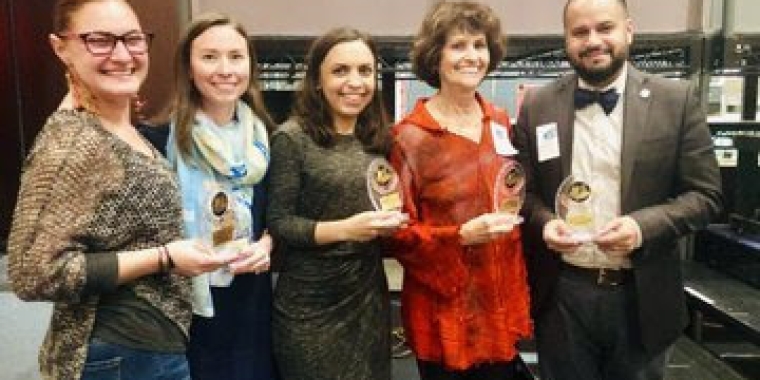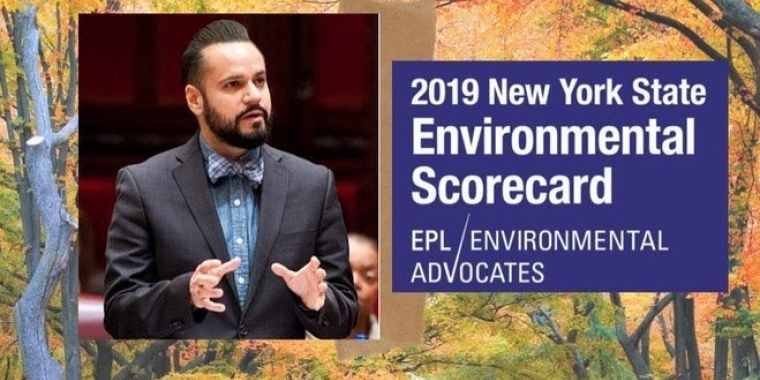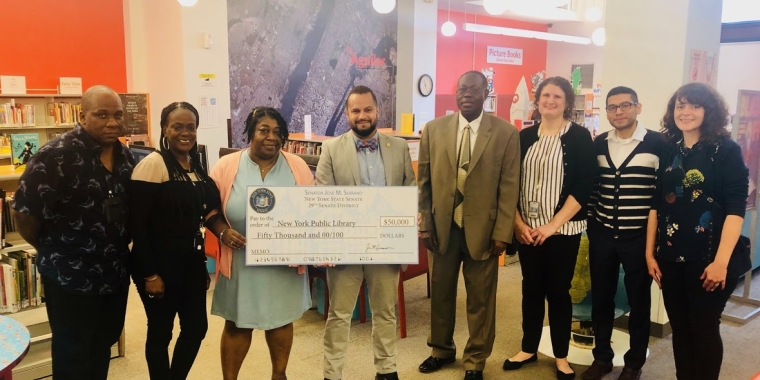
Local Elected Leaders Applaud Increased Funding For NYCHA
New York, NY – On Wednesday, August 15, 2007 Governor Spitzer signed legislation that will significantly increase state funding for the New York City Housing Authority (NYCHA), and provide desperately needed support for thousands of New York City families.
The bills S.4329 (Lanza) and A.7905 (López) makes the amount the State pays to NYCHA for residents that receive public assistance equal to the amount it pays to private landlords who also house public assistance recipients. Despite similar operating expenses, public housing authorities now receive an average of just $168/month for housing a family of four on public assistance, compared to private landlords who receive an average of $450/month.
The disparity has cost NYCHA millions of dollars a year, swelling the agency's budget to nearly $225 million. The budget deficit has recently led to layoffs and a decrease in services for tenants. City Councilwoman Mark-Viverito joined with East Harlem’s state legislators, Senator Serrano and Assemblyman Powell, as well as local advocacy organization Community Voices heard, to push for change. All worked jointly to put pressure on Governor Spitzer to sign the shelter allowance bill and applauded the Governor's decision.
El Barrio/East Harlem is one of the neighborhoods with greatest number of developments and greatest number of public housing units in the City of New York. City Council District 8, represented by Councilwoman Mark-Viverito, has 10% of the total number of public housing units in the City.
Councilwoman Mark-Viverito said "Our public housing which comprises over 160,000 apartment units in which more than 400,000 people live is one of the most important affordable housing options for many of our low-income families. It is our responsibility to do all we can to ensure that the New York City Housing Authority (NYCHA) is treated justly and equitably when it comes to state funding. I want to thank the Governor for taking a major step towards averting a public housing crisis. This is only the beginning though, and much more work remains to be done by NYCHA officials and city, state, and federal legislators to secure the future of public housing."
New York State Senator Serrano said: "Housing remains the top concern in my Senate district, from the Bronx to East Harlem and all the way to Roosevelt Island. I applaud Governor Spitzer for reaffirming the state’s commitment to affordable housing in New York City, particularly at a time when the overheated real estate market is stretching the fabric of our many great communities."
New York State Assemblyman Powell said: "It’s only fair that the state reimburse NYCHA like any other landlord. We lobbied Gov. Spitzer to sign the bill and I’m glad he did. This will help NYCHA close its budget deficit and thus provide better services to public housing residents."
Tiara Velez, Community Voices Heard leader and a resident of Jefferson Houses said "I want to thank Governor Spitzer for signing the shelter allowance bill and thank our local elected officials for fighting hard alongside of community members. As a member of Community Voices Heard and a life-long resident of public housing, it is good to see that the work of public housing residents has paid off and that the Governor and State of New York finally are addressing the critical budget problems facing NYCHA. I hope that the Governor will continue to support us by reinstating full funding for public housing in the budget next year."
Since 1998, New York State has not provided any funding for public housing. While the State did allocate 3.4 million dollars of operating subsidies for State-built public housing in New York City this year, this figure is far short of the $225 million needed by NYCHA to cover its budget shortfall. Community Voices Heard members, many of whom are also residents of public housing, started to advocate for the state to contribute its fair share to NYCHA amidst the Gubernatorial election last fall, continued through this year’s budget negotiation process, and then went on through the legislative process with this latest push.
The bill will ultimately direct $46 million in funding to NYCHA yearly (after being phased in over a 3-year


